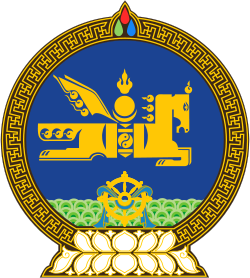Laws

The modern history of the Mongolian legal system begins in March, 1990, with the abolition of one party rule under the tutelage of the Soviet Union. In that year the Constitution of Mongolia was amended to allow for multiple political parties and competitive elections.
Over the two years from 1990-1992 Mongolia’s legal system saw major changes, including 35 new laws and amendments, including the establishment of the legal legitimacy of private property. These changes led to the adoption in 1992 of a new reform Constitution.
This reform constitution, the current Constitution of Mongolia, reflects many principles of democracy as practiced in Western Europe and North America, including the Free Market economy. Human rights and personal freedoms are held in high regard with the state being responsible for guaranteeing such freedoms.
The government is separated into familiar Executive, Legislative and Judicial branches. Judicial independence is enshrined within the constitution. Laws are enacted by the parliament, called the State Great Khural.
The Mongolian legal system is a Civil Law system. Written laws rather than judicial decisions are the primary source of law. Courts interpret and apply laws in settling cases or disputes.
Click on the area of law which you wish to explore:
- Banking deposits and transactions (1995)
- Strategic investment law (2012)
- Domestic and industrial waste (2003)
- Customs tariffs (1996)
- Customs (1996)
- Currency settlement (1994)
- Copyright ( 2006)
- Cooperatives (1998)
- Consumer rights (2003)
- Constitution (1992)
- Company (1999)
- Advertisement (2002)
- Accounting ( 2001)
- Anti-corruption (2006)
- Arbitration (2003)
- Auditing (1997)
- Bankruptcy (1997)
- Banking (1996)
- Central Bank (2001)
- Chamber of Commerce (1995)



